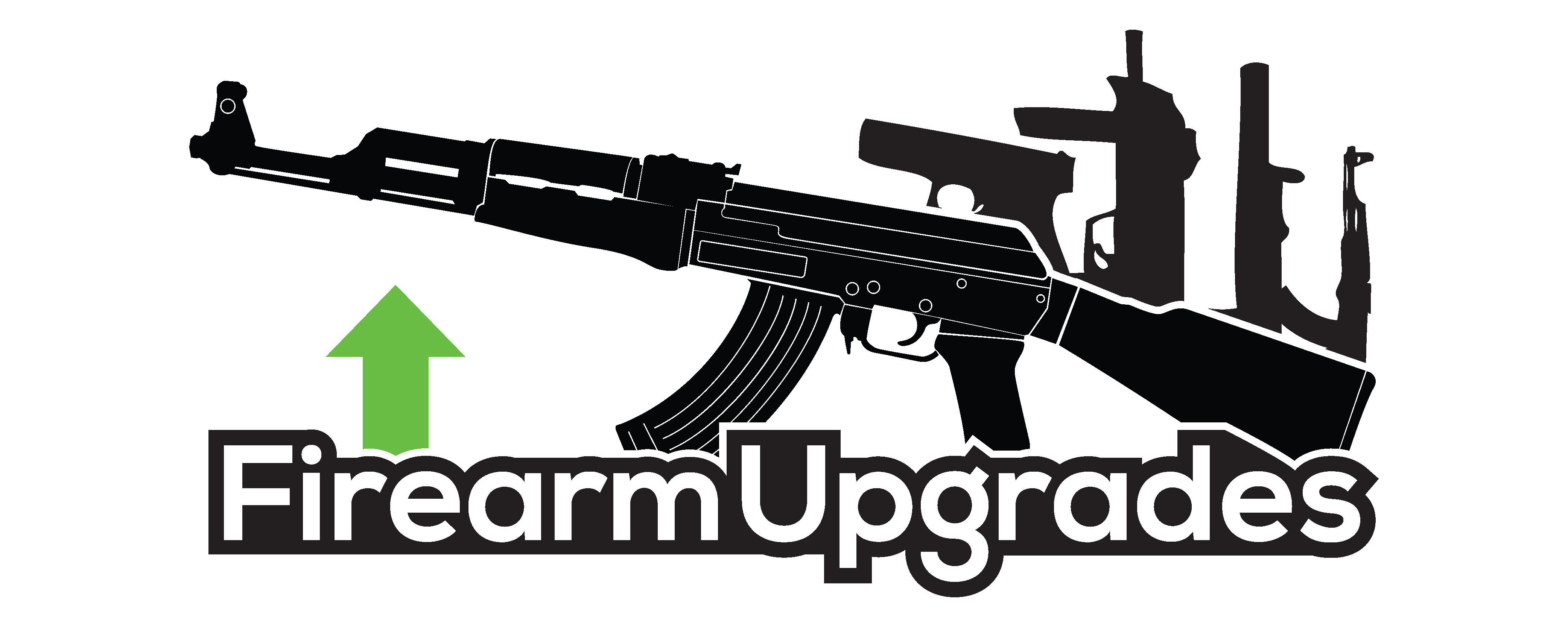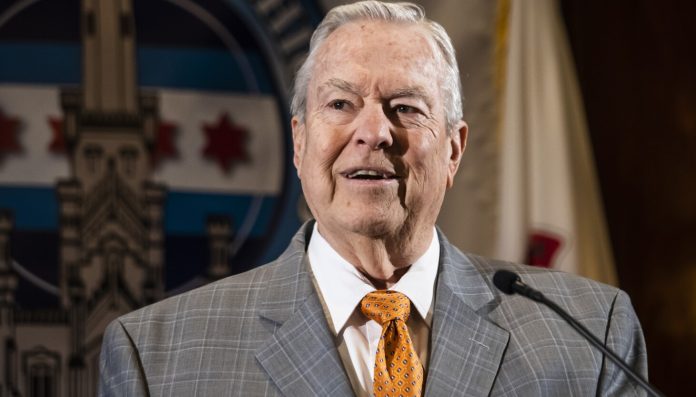Bill Kurtis was a mainstay of Chicago’s television news landscape for decades, appearing at the anchor desk alongside Walter Jacobson on WBBM and nationally with Diane Sawyer on CBS Morning News.
As a broadcast journalist, he covered some of the 20th century’s most gruesome murder cases, from Charles Manson to Richard Speck, and broke landmark reporting on the use of Agent Orange during the Vietnam War. More recently, he has lent his signature deep voice to both Will Ferrell’s “Anchorman” and NPR’s weekly quiz show “Wait Wait…Don’t Tell Me!”
But his broadcast career almost didn’t happen at all. Kurtis, who turns 85 this month, recounts it all in his aptly titled memoir “Whirlwind,” which is out Tuesday from University Press of Kansas.
It all began the night Kurtis was on air during a tornado in his native Kansas. The young 20-something was still deciding between being a newsman or putting his law degree to work, having already accepted a job at a firm.
But that night, with a tornado on the horizon, Kurtis looked into the camera and said, with a bit of drama: “For God’s sake, take cover.” Just three months later, he was headed for a TV gig in Chicago, with his law career permanently in the rearview.
Now, as Kurtis takes stock of his personal history, he says the journalism industry is at a crossroads. The parent company that owns his former professional home, CBS News, settled a $16 million lawsuit with President Donald Trump over the editing of a “60 Minutes” interview with former Vice President Kamala Harris during the 2024 presidential election. And in July, the network said it will cancel Stephen Colbert’s late night show next spring.
It’s all got Kurtis, a storied newsman, worried about where we go from here, he recently told WBEZ’s Courtney Kueppers. Below is a transcript of that conversation, which has been lightly edited for length and clarity.
I understand the title “Whirlwind” has a bit of a double meaning — not only your whirlwind career but also a pivotal moment that launched you into broadcasting. Can you tell me about that moment in Topeka that inspired the book’s title?
When I graduated from law school, I was 26 years old, and because I had a deep voice, I had worked at a series of part-time [broadcasting] jobs, even doing Little League baseball and experience with a classical music station. So, I had worked out my mic fright.
A friend of mine happened to be a news director in Topeka and asked, “Can you fill in for me doing the 6 o’clock news?” I left a tax review class and was happy to do that. I did the 6 o’clock and the general manager came down and said, “Stick around. We have a cold front coming in from Manhattan [Kansas] and have reports of some high winds.”
At 7 o’clock, I’m on camera waiting to go on to give the all clear, because it’s always an all clear, there’s never a tornado, when all of a sudden, I heard a two-way radio from one of our cameramen on the western edge of the city and [it] said, “I’ve got a tornado on the ground. It’s huge.”
He said it’s wiped out [an] apartment complex. For me, that was truth zero. It’s time to go. The camera goes on. And a lot happened in the flash of time before I said those words, because I knew the next words that I would say would mean life or death for people, but I had to make it serious enough to convince them to go to the shelter, go to the basement. And so I said, “For God’s sake, take cover.” Five words would mean life and death to a lot of people, and it would mean the beginning of a 60-year career in broadcasting.
I heard you say, I think referring to that evening, that “television done the right way could be a force for good.” Do you still feel that way?
I do. I believe that it is. Journalists are individual and independent people who are dedicated to the search for truth. We’re professionals, like doctors and lawyers. We were written into the First Amendment, when they were writing the Constitution — they didn’t put doctors or lawyers in there, because they knew we were very important.
You did landmark reporting on the use of Agent Orange during the Vietnam War. You have said that that was the biggest story of your career. What are you most proud of in terms of that reporting?
Well, with that reporting [for WBBM], it was really investigative reporting in which I was able to use my law degree. I was writing a story for the 10 o’clock news, and it was 12 names of veterans who were dealing with symptoms that couldn’t really be explained, and they were brushed off by [Veterans Affairs] and sent home. I started to interview them, and I knew at the time, in a flash, if this is true and if it really was caused by our own chemical and biological warfare, it would be a national, international story.
But there were 40 years of research that it was not harmful to human beings. Well, it may not have been harmful if you used it according to instructions, that’s always the out, so I had to prove that it was dangerous to human beings.
I was interviewing a guy who had served in Pleiku [a city in central Vietnam] with Special Forces who said, “Yes, I was exposed. It was a white mist that came over the trees, and then we could see it dripping off the leaves. So, I was definitely exposed.” He was sitting in a living room, and his 5-year-old child came in and was standing with Daddy and put his hand on his knee, and it exposed a little tip of a finger that was hanging by the skin. And it was a congenital problem — a birth defect, exactly what we were trying to prove. It was that picture that was so powerful. It really told this story.
Today — and this was a fight to get through — presumptive evidence applies to 20 to 50 types of cancer in which a veteran doesn’t even have to show that they were exposed. All they have to do is say “We served in Vietnam” and they are automatically in this line to be treated in the VA.
The guys come to me all the time and say, “Thank you. I’ve got prostate cancer, but you know, the VA helped me.” That’s why I say it was the high point in my career, because it combined law, investigative reporting and carrying it through, staying with it, as I believe journalism should do.
As someone who spent your career in television broadcasting, are you concerned about the rise of misinformation in this fractured media landscape?
Oh God, yes. We’re at the pivot point where the government is taking down our system of government, everything we know, piece by piece.
I can’t speak for “60 Minutes,” but according to what I have heard, they settled the lawsuits so that CBS could sell itself, and what we have heard is that they wanted a bias monitor. So, for the first time that I have been aware in my whole career, a person from the government would review the stories that you are covering.
That kind of thing sends shivers up. We’ve been searching for the truth independently all these years. We’re not bad people, we’re professionals. So, I am scared.

In “Whirlwind,” out Sept. 16 from University Press of Kansas, Kurtis recounts his time covering the high-profile murder cases of Charles Manson and Richard Speck. Kurtis also did landmark reporting on the use of Agent Orange during the Vietnam War, which he calls the high point of his career.
Courtesy of University Press of Kansas
You spent so much of your career at CBS, where there have been so many changes, not only at “60 Minutes” but the decision to cancel Colbert. What do you make of that?
Well, they have an excuse, because they’re going to pull the show, and I can understand if they’re not making money, sure, you have to change. But it also carries a message. It’s a concession to Trump. He won.
Shifting gears a little bit, many of our listeners know your iconic voice from “Wait Wait… Don’t Tell Me!” Why was that something that you were interested in being a part of?
Peter Sagal, the star of the show, and I were friends, and when Carl Kasell retired, they needed somebody to be their score keeper. I guess they wanted somebody from the news business.
News people do not do movies or comedy shows, and I had adhered to that all my life, but I said, “Oh, why not? I’ll fill in for a while.” So, I go on, and it’s a live show and there are audiences from 700 weekly to 8,000 we had at Tanglewood just a couple weeks ago. And I can tell you that one of the most satisfying things in the world is to get a laugh from 8,000 people. It doesn’t make me a comedian, it’s just fun. I’m retired, you know? Why not do these other things?
You do have, of course, this sort of instantly recognizable, famous voice. Do you do anything to maintain your voice?
People are surprised at this: I don’t do anything, nothing. I mean, I was born with it. Now, I’ve worked since I was 16 until today, and that’s kind of an exercise — like pumping iron would be for somebody physically. Vocal cords are a muscle, and you have to use them in order to keep them flexible and in order to keep that voice. But I did, and without any other formal training or formal exercise, it’s been very good to me.
Courtney Kueppers is an arts and culture reporter at WBEZ.


